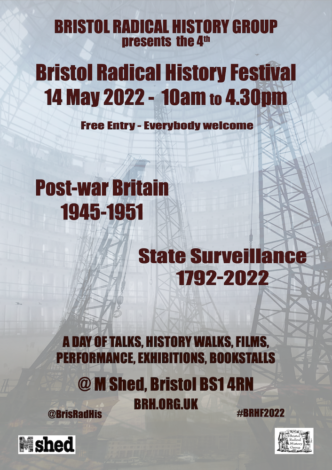Stolen Paradise: the post-war squatting movement in Bristol
During the summer of 1946, thousands of British families took the law into their own hands to temporarily solve their housing problems by "requisitioning" empty military camps. This mass-squatting movement was rapid, spontaneous and entirely working-class in character. While it was often driven at ground level by women, the movement soon developed a formal leadership structure dominated by ex-servicemen who had served as NCOs and warrant officers. Bristol, with particularly acute housing […]


